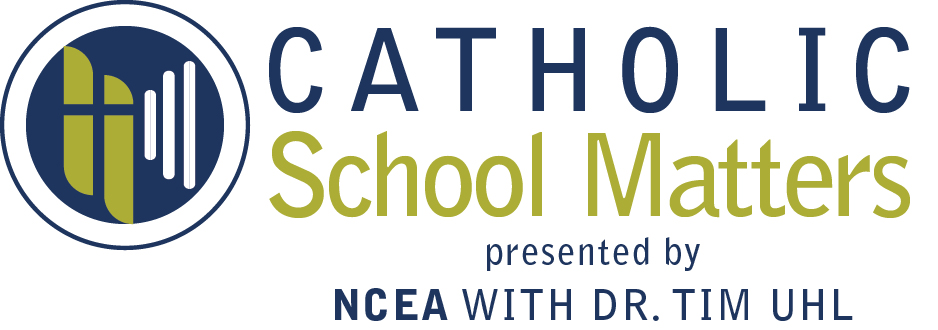One of my professional goals for this year was to read the Church documents on education. I started this project with a list of 10 Church documents on education and included a link to the document, a podcast conversation with another thought leader, a blog or two from another reader, and links to articles about the document. This became a virtual PLC resource for teachers, administrators, and superintendents in order to learn more about what the Church has said. After all, those documents can gather dust if they aren’t studied and most of us struggle to find them and need help to interpret them. I’ve aggregated these modules (including “Joy of the Gospel”) on this webpage.
Then I discovered that the Vatican’s Congregation for Catholic Education came up with a document in 2017 “Educating to Fraternal Humanism.” So I have embarked on another module for the Church Documents PLC. First, I spoke to Cardinal Versaldi, the Prefect of the Congregation and the principal author of last year’s document. Listen to my podcast conversation with him where he describes his background and the purpose of the congregation.
Then I tackled the document with Michael Zelenka of ACE’s Remick Leadership faculty. Zelenka teaches the church documents course. Listen to the podcast here. I have asked four thought leaders in Catholic education to contribute their reflections on the document, too.
- Gail Donahue of Notre Dame (Maryland) found connections to the recent NCEA Convention and reflects on the challenge for higher education to create cultures of dialogue.
- Jeannie Ray-Timoney, associate superintendent for the Archdiocese of Portland, discusses the implications for dialogue and inclusion for our Catholic schools and her own call to help build a more peaceful world.
- Jim Rigg, the superintendent of Catholic Schools for the Archdiocese of Chicago, reflects on the call of the document to put students at the center of our work and the importance of forming communities of support.
- Nicole Garnett, the John P. Murphy Foundation Professor of Law, University of Notre Dame and Senior Policy Advisor, Alliance for Catholic Education, resonated with the call for Catholic universities to develop research to prove the value of Catholic schools. She also heard an echo of Blessed Basil Moreau’s observation that “Christian education is the art of bringing young people to wholeness in the image of Jesus Christ.”
These resources are meant to serve as an onramp for you to assist you in reading the document. It’s a short, dense document which calls us all to reexamine our role in promoting worldwide solidarity. Educating to Fraternal Humanism challenges Catholic schools to move beyond the simple instrumental view that education is self-serving and instead should serve the common good of the entire world. Schools should be a “framework of relationships that make up a living community” of faith which calls students to examine their call to serve the world. To be human means to be in communion, not separate and individualistic. Catholic schools are called to intentionally build communion and to instill in our students hope as opposed to a “paradigm of indifference.”
In the podcast, we talk about two other documents referenced in Educating to Fraternal Humanism—the 1967 encyclical Populorum Progressio and the 2014 World Congress document “Educating Today and Tomorrow.” Below are links to other resources such as the Crux article from the time Educating to Fraternal Humanism was released, an article from Catholic News Agency “Inclusion, Dialogue highlighted in new Vatican guidelines for educators,” and the Vatican press release. I also included a different perspective from the Cardinal Newman Society.
This entire module and supporting documents can be found here. Enjoy reading!
Access this week’s eNewsletter here.
Top 5:
This week, I’m presenting the 2017 document from the Congregation for Catholic Education (essentially the Vatican’s Department of Education). Called Educating to Fraternal Humanism, the document supports the theme of building community in Catholic Schools. In fact, it’s subtitled “Building a Civilization of Love.” I’ve also collected four guest blogs from thought leaders in Catholic education to help you interpret the document as well as a few articles about the Fraternal Humanism. Thus, the Top 5 is quite simple.
- Here is the link to the document itself. It’s not particularly long so I encourage everyone to give it a read.
- Link to Professor Nicole Garnett’s guest blog on the document. Garnett is from the University of Notre Dame School of Law and serves as a consultant on the USCCB Committee on Education.
- Link to Dr. Jeannie Ray-Timoney’s guest blog on the document. Ray-Timoney is an Associate Superintendent from the Achdiocese of Portland in Oregon and is a USF educational leadership grad.
- Link to Dr. Jim Rigg’s guest blog on the document. Rigg is currently the Superintendent of Schools for the Archdiocese of Chicago.
- Link to Dr. Gail Donahue’s guest blog on the document. Donahue serves on the Notre Dame University of Maryland faculty and is involved in supporting Catholic schools in the Baltimore region.
Next week, I’m going to return to my typical format with lots of different articles and my blog will be focused on the House system in high schools which is a method for intentionally building community.
